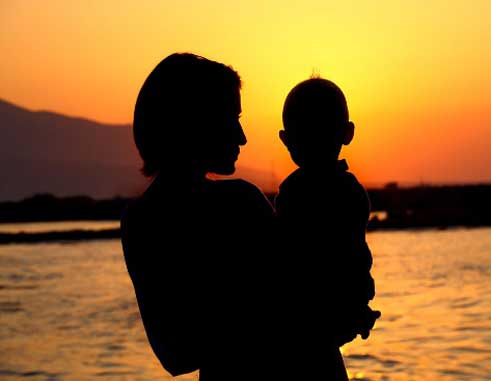WHEN the world celebrates Mother’s Day tomorrow, our thoughts will wander in the direction of whatever Motherhood has meant to each of us.
Hopefully, we will ponder on the things that made our Moms who they are and what they have been to us. Our individual experiences will differ. But the main measurement of ties between mother and child is in the quality of care given.
Conditions of existence determine the ability of mothers to deliver care, so a greater amount of mothers worldwide – and especially in developing countries — find themselves unable to care as they should.
It’s an interesting paradox that care, essential as it is, ensures that mothers spend more time caring for children than do fathers generally.
An interesting study of the relationship between mothers and childcare and the cost to societies was done for the Overseas Development Institute (ODI) and a Report was submitted in March 2016 entitled: ‘Women’s Work: Mothers, Children and the Global Childcare Crisis’.
Among its findings: ‘The unequal distribution of care, because it is both time-consuming and resource-intensive, is holding back women and girls from advancing in other areas of their lives.’
It also found that: ‘Across 53 developing countries (outside Latin America and the Caribbean) some 35.5 million children under five – more than the number of under-fives in Europe – are without adult supervision for at least an hour in a given week.’
The research revealed that ‘Across 66 countries covering two-thirds of the world’s people, women take on an extra ten or more weeks per year of unpaid care work…’ and ‘On average, women spend 45 minutes more than men daily on paid and unpaid work – and over 2 hours more in the most unequal countries.’
Also found was that ‘Across 37 countries covering 20% of the global population, women typically undertake 75% of childcare responsibilities.’
The researchers warned that ‘Care responsibilities not only reduce possibilities for female education and inhibit labour force participation, they also affect the types of jobs women do, how productive they are and how much they earn.’
In some settings, they found, ‘Women are more likely to opt for part-time work, and in others to seek informal sector employment that may be more readily reconciled with caring responsibilities.’
The researchers also warned: ‘Where women do not work or forfeit more productive opportunities owing to these obligations, the cost is immense – both in terms of their own potential and in terms of the economic cost to societies.”
They noted too that ‘Gender pay discrimination is reflected in diminished lifetime earnings, and inhibits women’s ability to provide for their children.’
Indeed, a separate 2015 study estimated that between now and 2025, gender parity overall has the potential to boost global GDP between $12 trillion and $28 trillion – and values the unpaid work undertaken by women at up to $10 trillion yearly, or about 13% of global GDP.
These damning facts and figures underline that while the need for childcare is universal and vital to the development of individuals and of societies, its delivery is decidedly one-sided – and very costly to each society.
The fact is – as the researchers also noted — ‘Care covers not only such hands-on activities as bathing, clothing and feeding, but it also includes emotional support…’ – and that’s simply (but profoundly so) because the word Care is ‘loaded with moral overtones concerning both duty and love’.
Navigating the path between duty and care can be an easy or rough passage, depending on each individual experience between mother and child. But however the ride was or is, Mom will always be Mom – and that’s nothing to remain mum about.
Let’s celebrate all our mums and moms this year – and always!














